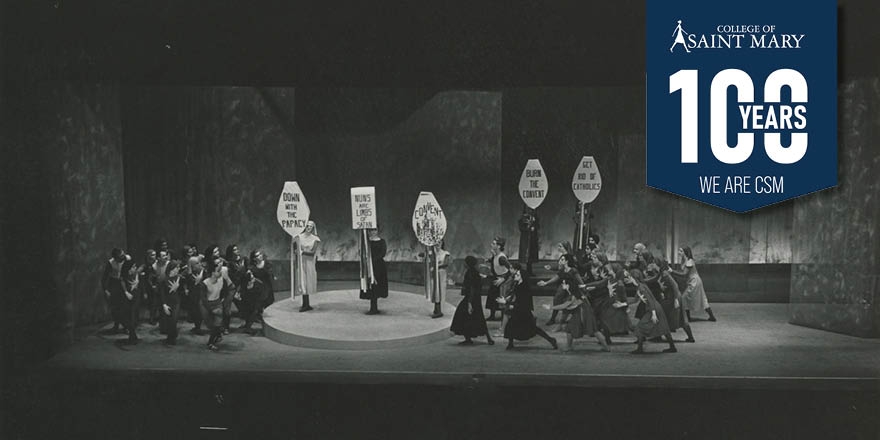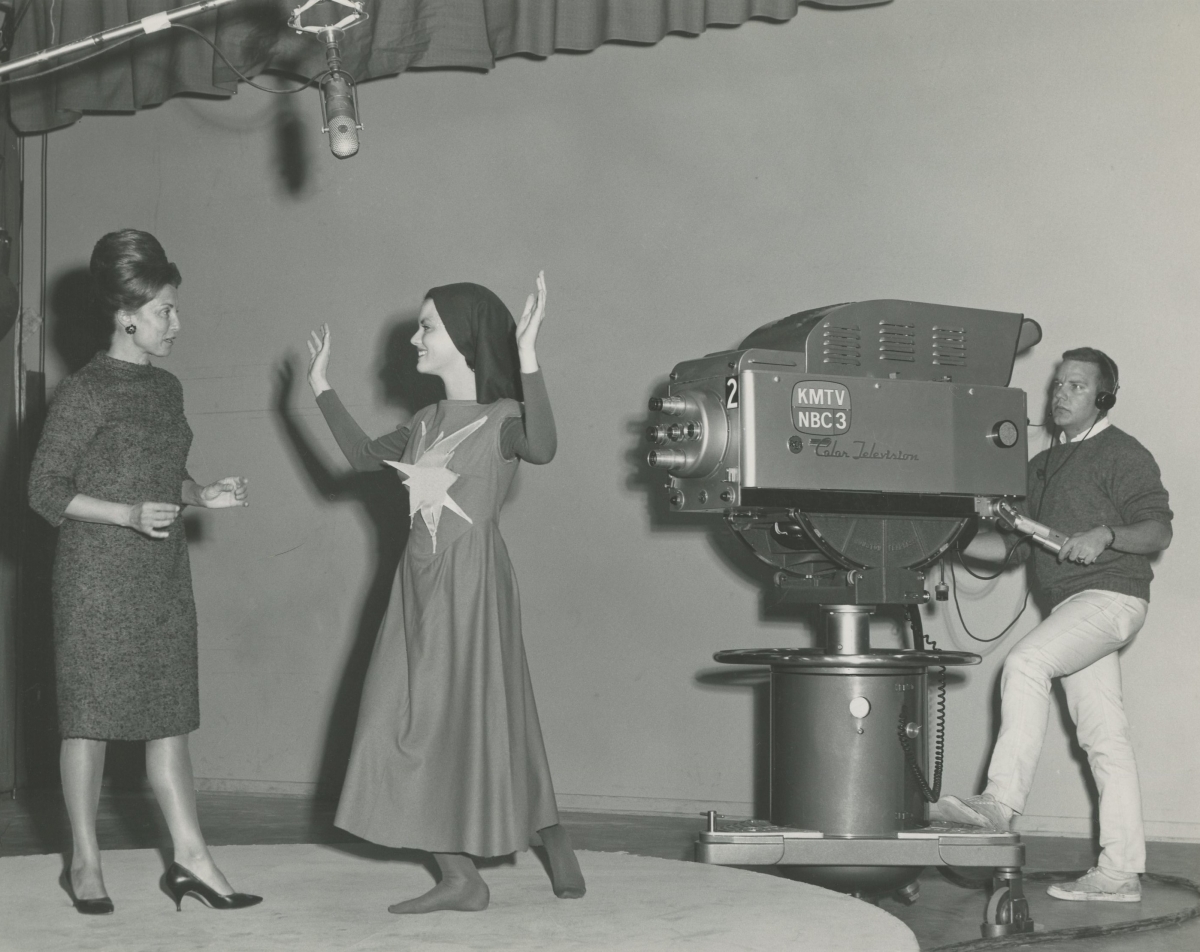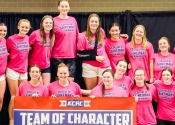
Sisters of Mercy Centennial Celebrated with Theatrical Production
Editor’s note: This is the fifth in a series of stories on College of Saint Mary's history during its first century. CSM is marking its 100th anniversary in a yearlong celebration through August 2024.
While the College of Saint Mary is marking its 100th anniversary this year, the Sisters of Mercy, founders of the University, celebrated the centennial of their arrival in Nebraska in October 1964.
They marked the occasion with “something unusual” -- an ambitious theatrical production called “Western Testament,” an original musical-drama about the seven Sisters of Mercy and their influence on the history of Nebraska, according to an advertisement in the Omaha World-Herald. The show told of the nuns’ trials, toils, and high points after arriving in Omaha in 1864 in dance, song, and speech. It depicted a lack of funds, a fire that destroyed the convent, the opening of a school, the work to improve hospitals, a wave of anti-Catholic sentiment, and the induction of the first novices into the order.
“Western Testament” was staged at the Music Hall in the Civic Auditorium Oct. 23-25, 1964. The intention was to capture the spirit and essence of the Sisters of Mercy as well as reflect its historical significance in the region.
Sara Lee Stadelman of Detroit’s Performing Arts Workshop wrote and directed the production. She largely based the script on the doctoral thesis of Sr. Mary Edmund, RSM, a professor of history at CSM. Stadelman, a student of renowned dancer-choreographer Martha Graham, called the production a Choreologia, a new artform she created that included “a synchronization of stylized movement and the spoken words.”
The original music was composed by Radie Britain, a Texas-born pianist, writer, music educator, and composer of symphonic music. She had previously worked with Stadelman on another show and was living in Hollywood, CA, at the time of this show. The music included folk songs and hymns of the era.
“The Irish had a strong influence with their folk tunes and jigs,” Britain told the World-Herald. “There also were contributions from the pioneers and the Indians.”
Stadelman’s husband, Richard, a Kearney, NE, native and well-known architect who designed Bugsy Siegel’s Flamingo Hotel in Las Vegas, created the sets for the production. Her assistant and longtime partner, Paul Mackan, served as the narrator.
In September 1964, Stadelman became the artist-in-residence at CSM while casting the show and directing rehearsals. Auditions were held at CSM. The cast of more than 100 included CSM students and alumnae.
Sr. Mary Angelica, chairman of the College’s English department, was the chief promoter of the production.
“The production is something the people will enjoy seeing,” she told the World-Herald. “It’s very beautiful and deeply moving.”

A 30-minute preview of the show, "Prologue to Western Testament,” was aired on KMTV a week before opening night.
Following a pre-opening performance, the Omaha World-Herald gave the production a mostly positive review in an article published Oct. 23, 1964. The success of the show was credited to the cast and Stadelman. The Sisters of Mercy were also praised for offering the “high quality” original work.
“The cast performed at a near-professional level. Members danced with grace and confidence. And some of the dance positions devised by Mrs. Stadelman are decidedly difficult. The cast projected extremely well, whether singing or speaking,” the article said.
“Mrs. Stadelman has done an outstanding job of direction,” the article continued. “Her staging, lighting and costuming are highly effective. The setting, several nearly transparent flats, has beauty in its simplicity. The words she has written for the production are of a fitting mood and meter.”
By Leeanna Ellis











